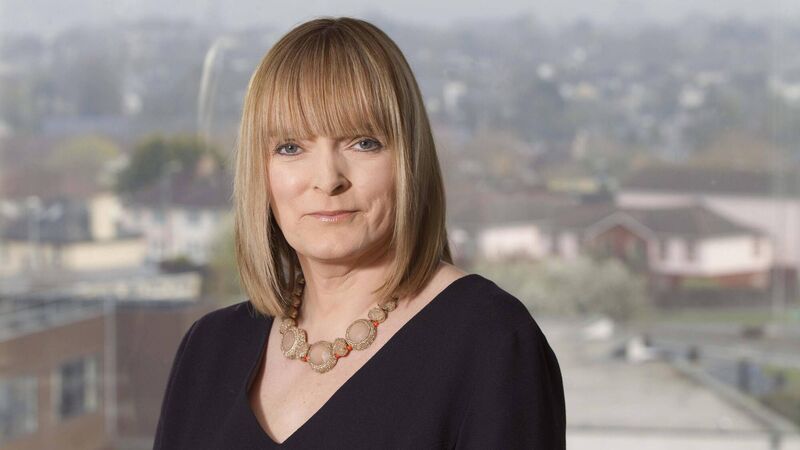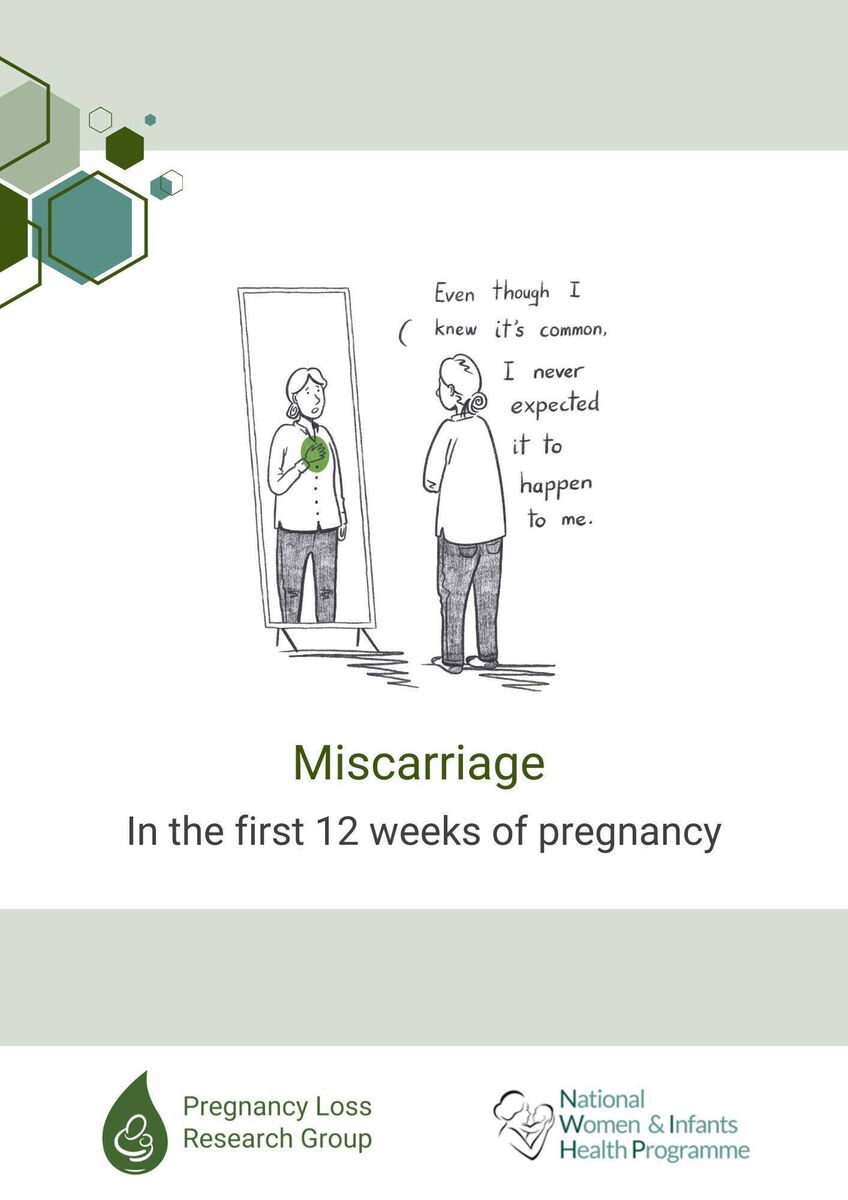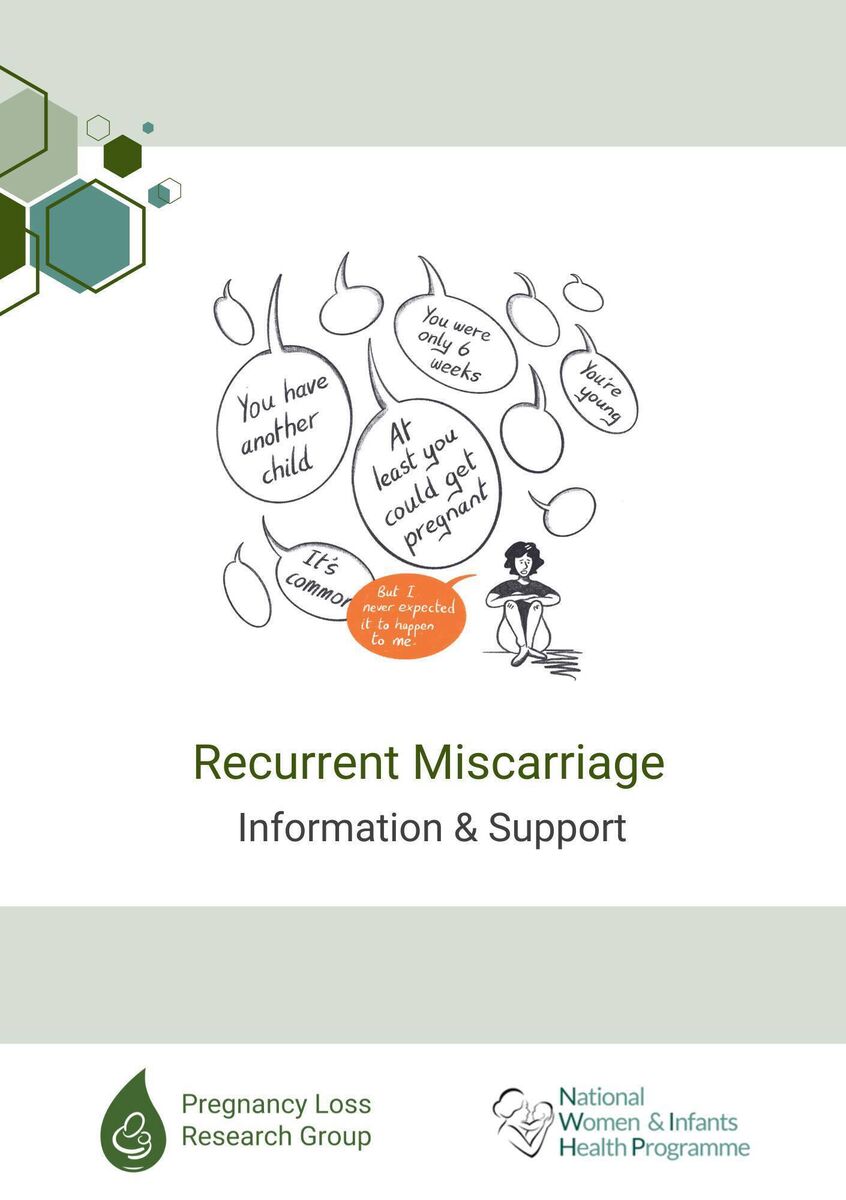'The care people receive after a miscarriage can have a significant impact'

The care that people receive after they experience a miscarriage can have a significant impact, says Professor O’Donoghue. Picture: Diane Cusack

To ensure inclusivity, the resources also include videos in multiple languages such as Arabic, Polish, Romanian, French and Irish Sign Language.

Recurrent miscarriage is now defined as the loss of two or more pregnancies in a row before 12 weeks of pregnancy.










 App?
App?


